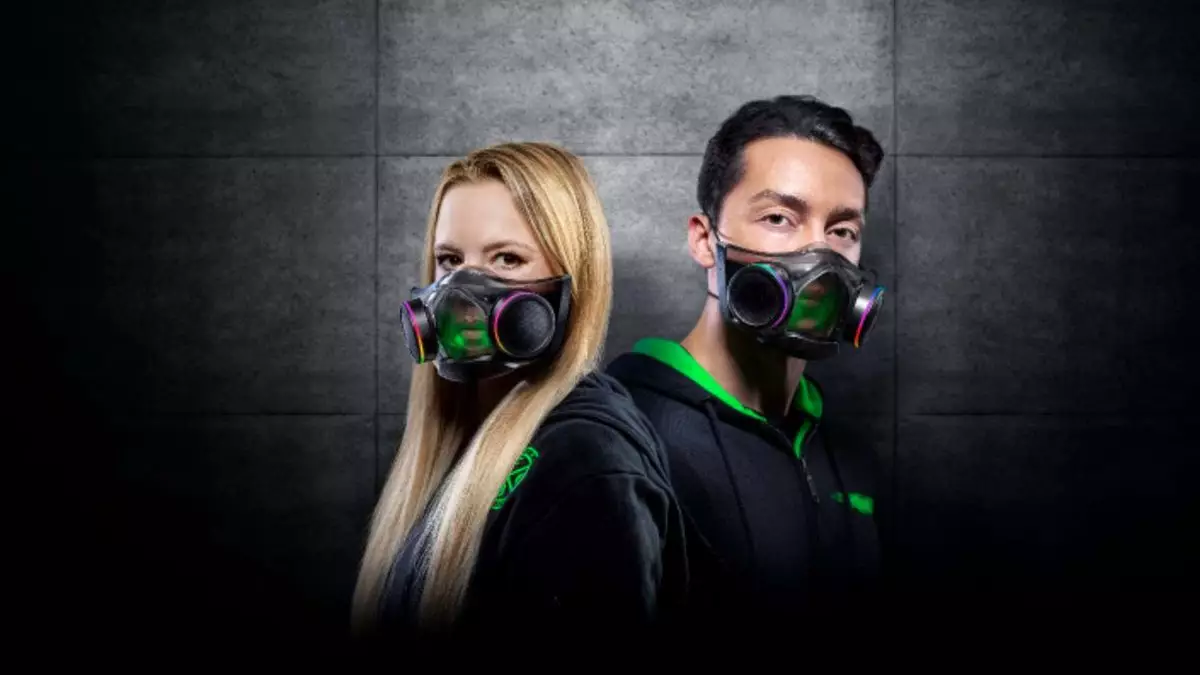The pandemic fundamentally transformed our approach to health and safety, notably increasing the demand for personal protective equipment. Among a myriad of innovations, Razer—a company predominantly known for gaming peripherals—ventured into the health space with the Zephyr mask. Boasting impressive aesthetics with customizable RGB lighting and a sleek black design, the Zephyr seemed positioned as a must-have accessory for the health-conscious individual. However, beneath its flashy exterior lay serious misrepresentations that would lead to substantial legal consequences for the tech giant.
Marketing the Zephyr as a high-tech solution, Razer made claims that suggested it could deliver N95-level protection during a time when such features were paramount for consumers. The use of “N95 Filters” in their promotional materials inadvertently conveyed to potential buyers that the mask itself met rigorous standards set by health authorities. Many customers were led to believe that they were purchasing a medically endorsed product, when in reality, the Zephyr had not been certified as an N95 mask. This fundamental disparity highlighted a critical flaw in Razer’s marketing strategy; promising far more than what the product could deliver was not only misleading but unethical.
Following public outcry and scrutiny from regulatory bodies, Razer quickly attempted to distance itself from these misleading claims, issuing disclaimers that the mask was “not a medical device nor certified as an N95 mask.” Yet this retrospective adjustment did little to address the damage caused to both consumer trust and the company’s reputation. The failure to substantiate their claims through certification testing, as confirmed by the Federal Trade Commission (FTC), further illustrated a lack of due diligence on Razer’s part.
The consequences of these marketing missteps quickly escalated, culminating in a legally binding settlement with the FTC in April 2024. Razer agreed to pay a total of $1,171,254.33—a combination of a $100,000 fine and over a million dollars earmarked for consumer refunds. This situation deftly encapsulates a burgeoning concern in today’s marketplace: consumer accountability. The $1 million allocated for consumer relief highlights the FTC’s commitment to restoring trust and ensuring that misled consumers are compensated for their purchases.
Notably, the FTC’s investigation revealed that only a meager 6% of U.S. customers had been issued refunds by Razer since the mask’s launch. When customers attempted to reclaim their funds, they faced hurdles ranging from denial of requests to contradictory information from customer service representatives. Such practices not only demonstrate a failure in customer relations but also indicate a systemic issue within Razer’s approach to consumer feedback and accountability.
In the eyes of consumers, brand loyalty is often synonymous with trust. Razer’s dealings in the Zephyr mask saga represent a significant breach in this trust, raising questions regarding the company’s integrity. The adverse effects of such malpractice extend beyond financial loss. For a brand broadly recognized in the gaming hardware space, the venture into health-oriented products was an opportunity to diversify and innovate. However, the inability to hold true to their commitments stands as a stark reminder that credibility is fragile and easily forfeited.
As someone who regularly utilizes face masks, I find myself disillusioned by Razer’s approach to public health. The marketplace displays an evident need for reliable, durable masks that can withstand everyday use without compromising safety. Instead of delivering on this potential, Razer’s missteps signal a failure to recognize the gravity of health concerns and consumer expectations.
The Razer Zephyr mask fiasco serves as a valuable lesson for both corporations and consumers alike. Companies must prioritize transparency and integrity, especially when their products have direct implications for health and safety. On the consumer end, this case underscores the importance of conducting thorough research before purchasing health-related items—not every enticing offer is as safe or beneficial as it seems.
Looking forward, it will be fascinating to see how Razer navigates this tumultuous chapter in its history and whether it can recover consumer confidence. As public health remains a pressing issue, the demand for credible, effective protective gear continues unabated. Razer’s future endeavors in this area must reflect a commitment to quality and truthfulness if they are to regain their standing in the eyes of consumers.

